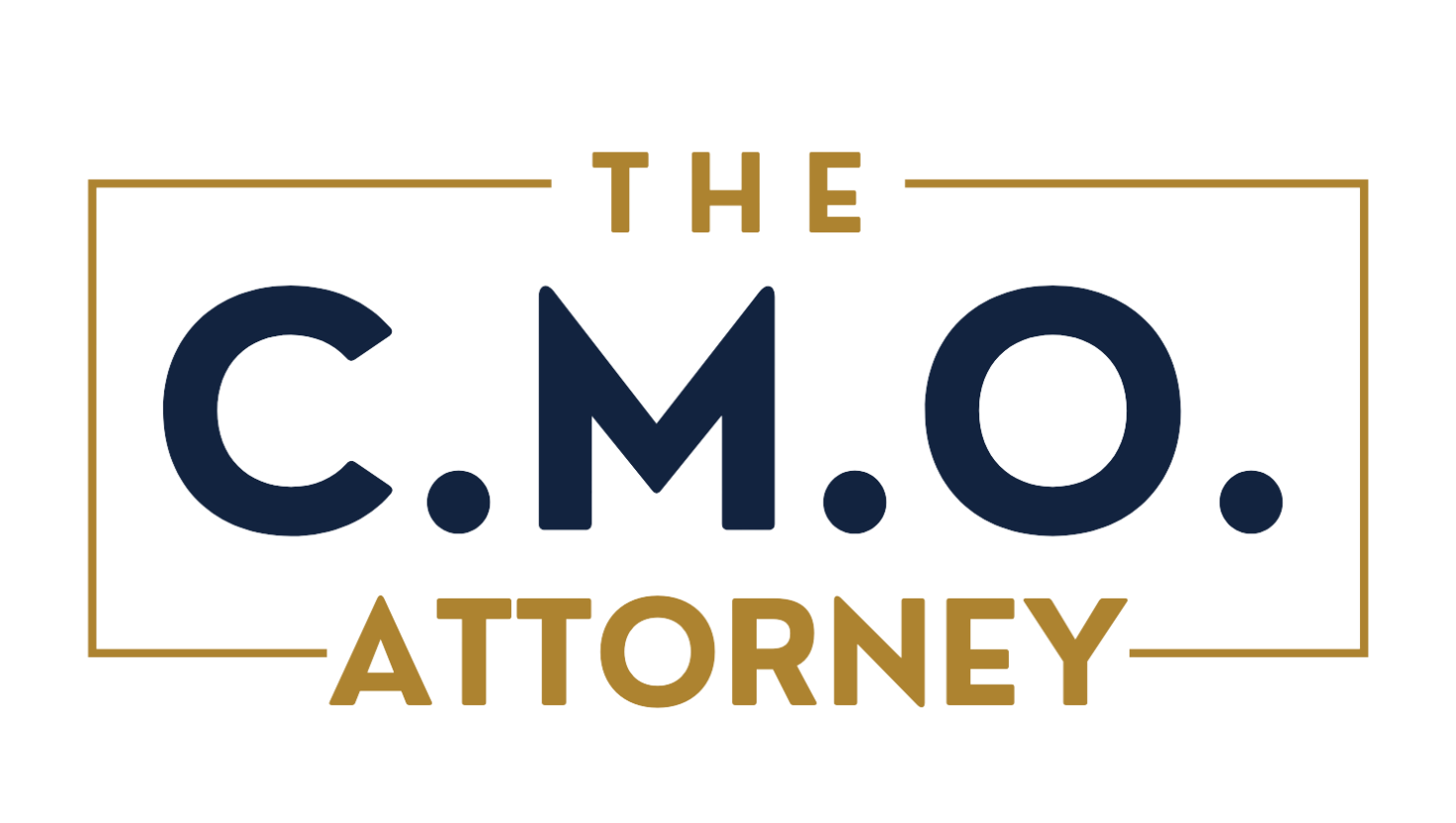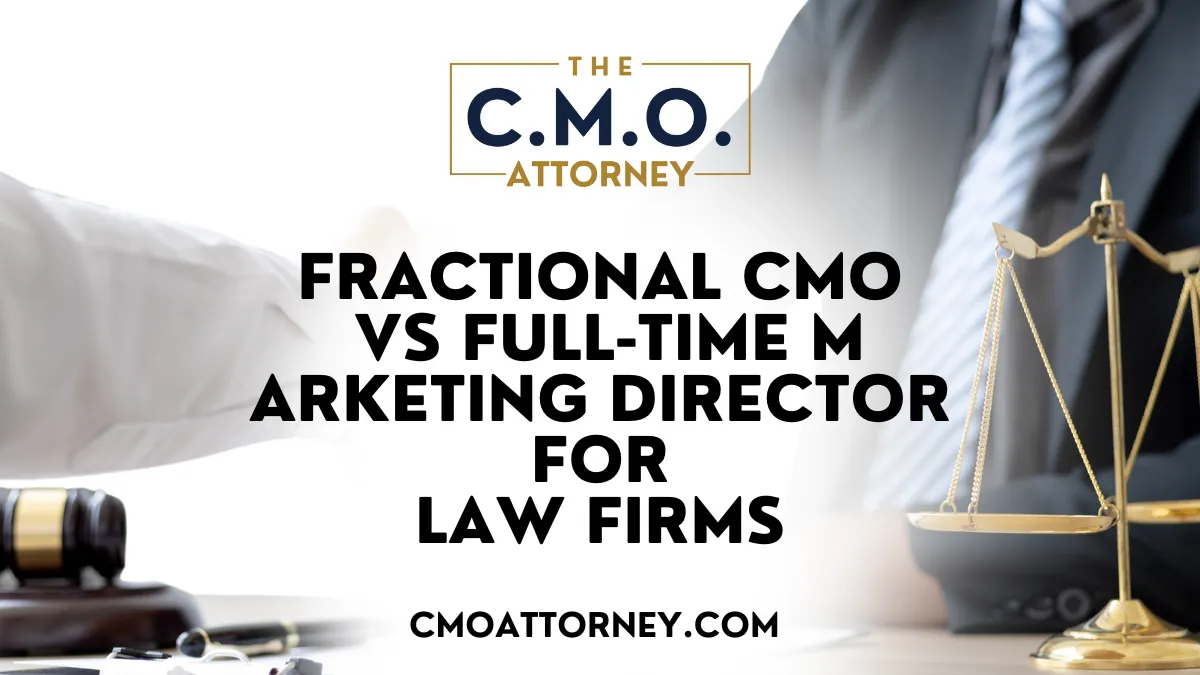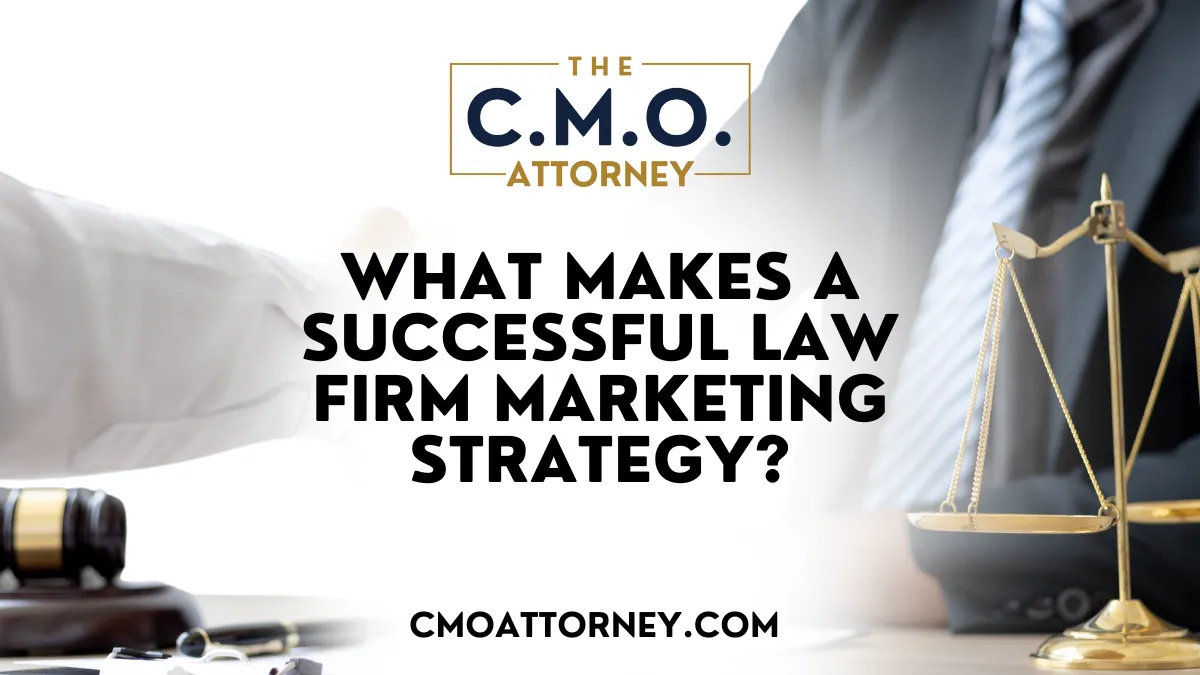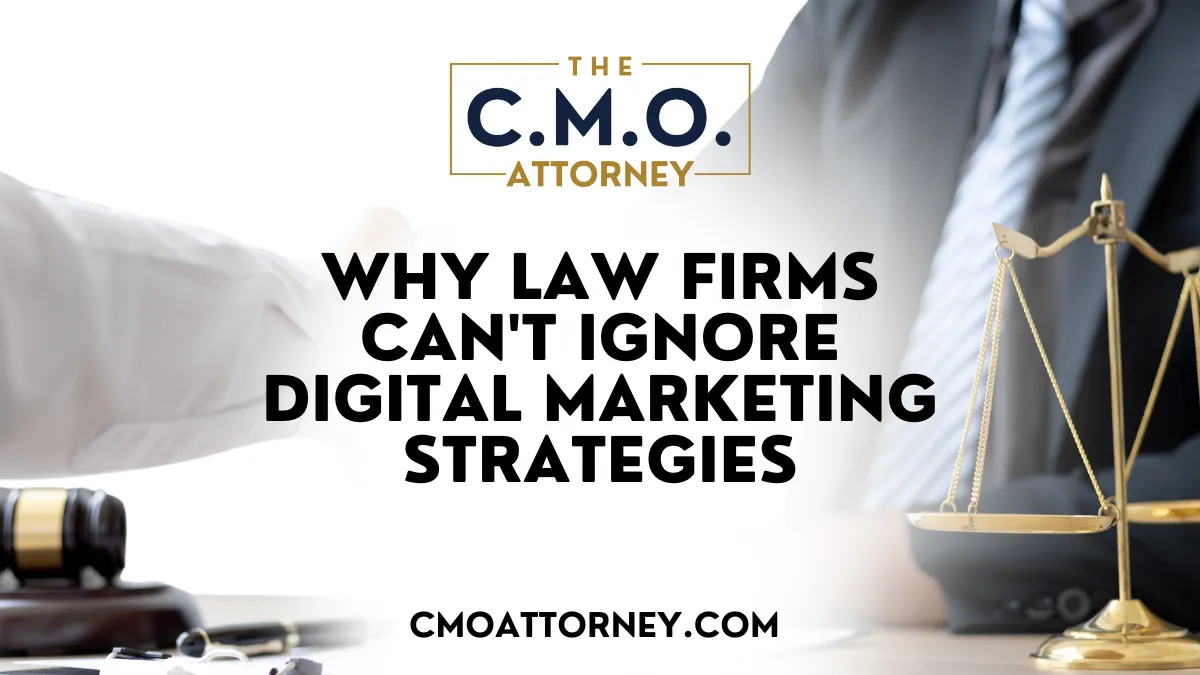Table Of Contents:
- Understanding Outsourced Marketing for Legal Firms
- Cost-Effective Marketing Solutions for Legal Practices
- Building a Successful Partnership With Marketing Agencies
- Leveraging Digital Tools and Platforms
- Innovative Strategies for Outsourced Legal Marketing
- Measuring Success in Outsourced Marketing Efforts
- Conclusion
In today’s challenging legal landscape, finding cost-effective strategies can be daunting for law firms. Many practitioners struggle with maximizing their marketing resources while staying within budget. This blog post will explore key approaches such as understanding outsourced marketing for legal firms and leveraging digital tools to enhance your law firm marketing strategy. Readers will gain practical insights to navigate common marketing challenges and implement successful strategies that drive results. By focusing on these areas, law firms can achieve measurable success without overwhelming expenses. The CMO Attorney wants you to be educated on the role of fractional CMO – so let’s get started, but if you’re ready – we’re here for a free consultation of your firm’s marketing plan and growth strategy!
Understanding Outsourced Marketing for Legal Firms
Outsourced marketing encompasses the practice of hiring external firms to manage and execute a law firm’s marketing strategy. This approach offers key benefits, including increased efficiency through automation and specialized expertise in consumer protection and personal injury marketing, as well as access to additional marketing resources. Misconceptions about legal outsourcing often hinder adoption, making it essential to clarify its advantages and operational realities, such as developing an effective about us page.
Defining Outsourced Marketing in the Legal Sector
Outsourced marketing in the legal sector refers to the practice of utilizing external consultants or marketing resources to manage critical aspects of a law firm marketing strategy. This model allows firms to tap into specialized expertise that may not be readily available in-house, particularly in areas like software development, online advertising, and about us content. By investing in an experienced consultant, law firms can enhance their marketing infrastructure, ensuring that campaigns are both innovative and effective in reaching potential clients.
Moreover, outsourced marketing provides law firms with the scalability needed to adapt to changing market demands quickly. Whether it’s refining a digital marketing strategy or optimizing consumer outreach, firms benefit from flexible resources that can scale with their growth. This approach not only reduces costs but also allows legal practices to focus on their core competencies while ensuring their marketing efforts are professional, targeted, and results-driven.
Key Benefits of Utilizing Outsourced Solutions for Legal Marketing
Outsourced marketing solutions provide law firms with access to specialized intelligence that fosters effective legal research and promotes compliance with numerous regulatory standards. By collaborating with experts in the field, firms can enhance their law firm website and digital presence, ensuring it meets the expectations of both potential clients and professional organizations like the American Bar Association. This partnership allows legal practices to stay informed about industry trends and best practices, leading to better marketing outcomes and improved client engagement.
Moreover, outsourcing allows law firms to focus on their core competencies while benefiting from sophisticated strategies tailored to their specific needs. This approach often results in cost-effective solutions that maximize marketing budgets, as experienced consultants can provide insights into optimizing campaigns and enhancing overall performance. With the right external expertise, law firms are poised to achieve sustainable growth and drive measurable results in their marketing efforts.
Common Misconceptions About Outsourcing Marketing for Law Firms
One common misconception about outsourcing marketing for law firms is that it increases overall overhead by imposing additional costs on top of in-house expenses. In reality, outsourcing can lead to significant savings by minimizing the need for specialized contract management, bookkeeping, and related administrative roles. By streamlining these processes through external expertise, law firms can reduce operational strain while reallocating resources towards client-facing activities.
Another myth is that outsourcing takes away control over the marketing strategy, especially during challenging periods like the pandemic. However, engaging external experts often enhances a firm’s digital marketing efforts by providing access to the latest tools and platforms tailored for legal services. This collaboration allows law firms to maintain oversight while benefiting from innovative strategies that drive client engagement and boost firm visibility in a competitive market.
James Frazier | The CMO Attorney | Fractional CMO
Cost-Effective Marketing Solutions for Legal Practices
Identifying budget-friendly strategies is critical for law firms seeking effective marketing solutions. Prioritizing return on investment ensures that efforts align with ethical practices, fostering reputation enhancement. Maximizing marketing impact with limited resources involves innovative techniques, including link building and leveraging server capabilities. The following sections will delve into specific strategies that empower legal practices to achieve success within their financial constraints.
Identifying Budget-Friendly Strategies for Law Firms
Identifying budget-friendly strategies in legal marketing involves leveraging legal technology to enhance efficiency while maintaining confidentiality. For instance, implementing customer relationship management (CRM) systems can streamline communication and client tracking without incurring heavy costs. By adopting these technologies, law firms can focus their resources on creating tailored marketing strategies that resonate with their target audience.
Graphic design is another area where legal firms can achieve significant cost savings. Utilizing online design tools allows practices to produce professional-quality marketing materials without hiring external designers. By integrating these budget-conscious approaches, law firms can effectively enhance their brand visibility while staying within financial constraints. This thoughtful allocation of resources enables a strong marketing presence that meets the needs of clients and increases overall engagement.
Prioritizing Return on Investment in Marketing Efforts
For legal practices, prioritizing return on investment (ROI) in marketing efforts is essential for achieving sustainable growth. By analyzing the effectiveness of lead generation strategies, law firms can identify which methods yield the best results while ensuring that resources are allocated efficiently. For instance, a criminal defense lawyer may find that targeted online advertising generates more qualified leads than traditional marketing methods, allowing for better financial planning and resource allocation.
Furthermore, effective marketing relies on diligent tracking of performance metrics and the careful documentation of strategies employed. This process not only helps in understanding which campaigns resonate with potential clients but also enhances data security by minimizing the risk of miscommunication and mishandling sensitive information. An informed approach ensures that legal practices maintain focus on cost-effective solutions that genuinely contribute to client engagement and overall firm visibility.
Maximizing Marketing Impact With Limited Resources
Maximizing marketing impact with limited resources requires law firms to focus on effective customer engagement through data management and analytics. By utilizing customer relationship management (CRM) systems, firms can track client interactions, preferences, and engagement metrics, enhancing productivity. This strategic approach allows firms to refine their marketing efforts based on real-time data, resulting in more targeted campaigns that resonate with potential clients.
Engaging an expert in digital marketing can also help law firms leverage low-cost strategies. These professionals can guide firms in optimizing their online presence, ensuring that each marketing dollar is spent effectively. For example, implementing targeted social media campaigns can improve visibility without draining resources, allowing firms to connect with potential clients more efficiently while maintaining a strong focus on customer needs.
Building a Successful Partnership With Marketing Agencies
Selecting the right marketing agency is vital for law firms aiming for cost-effective strategies. Establishing clear communication and expectations ensures alignment with goals, while assessing the agency’s industry expertise, particularly in areas like reputation management and health care, can lead to successful advertising campaigns. This approach positions firms for enhanced visibility through effective search engine strategies and recruitment efforts.
Selecting the Right Marketing Agency for Your Firm
Selecting the right marketing agency for a law firm involves evaluating the agency’s skill in crafting targeted landing pages and driving social media engagement. A firm should look for partners who understand the unique needs of legal marketing and can develop strategies that enhance law practice management. For example, an agency that can create effective landing pages may significantly increase lead conversion rates, helping to maximize the return on investment.
It’s also essential to consider the agency’s track record with various advertising channels, such as traditional options like billboards and modern digital strategies. Agencies that successfully integrate both types can offer comprehensive solutions, enhancing brand visibility across platforms. A solid partnership will ensure that a law firm’s marketing efforts directly address its needs while fostering growth in a competitive legal landscape.
Establishing Clear Communication and Expectations
Establishing clear communication and expectations is critical in the partnership between law firms and marketing agencies. This process begins with outlining specific goals related to legal marketing, such as improving email marketing strategies or increasing brand visibility through social media. By addressing these goals upfront, both parties can align their efforts, ensuring that the marketing agency understands the law firm’s unique needs, whether related to payroll campaigns or employment-focused outreach.
Regular check-ins and open lines of communication help maintain this alignment throughout the partnership. Firms can provide ongoing feedback about campaign performance, allowing marketers to adapt strategies quickly and effectively. This proactive engagement fosters a collaborative atmosphere that not only enhances marketing efforts but also encourages innovative approaches to reach potential clients, ensuring that all initiatives are cost-effective and strategically directed toward success.
Assessing the Agency’s Industry Expertise and Performance
When assessing a marketing agency’s industry expertise and performance, legal firms should prioritize agencies that demonstrate a strong understanding of social media marketing tailored to the legal sector. An agency’s ability to craft effective campaigns that enhance a lawyer‘s brand visibility through platforms like LinkedIn, Facebook, and Twitter can significantly impact overall marketing success. Moreover, evaluating their experience with niches such as mergers and acquisitions provides insight into their familiarity with complex legal concepts, ensuring they can represent the firm’s credibility accurately in targeted communications.
Firms should seek evidence of past performance from marketing agencies through case studies showcasing proven results in legal marketing. For instance, agencies that have successfully improved a law firm’s online presence or engagement metrics through strategic social media initiatives can offer valuable perspectives on optimizing marketing budgets. This focus on measurable outcomes allows legal practices to work with partners that not only enhance their brand but also contribute to sustained growth and recognition in the competitive legal landscape.
Leveraging Digital Tools and Platforms
Utilizing digital tools and platforms is vital for law firms aiming to enhance their legal marketing strategies effectively. By leveraging social media, firms can boost visibility and engage clients directly. Embracing content marketing helps educate potential clients, while implementing SEO tactics improves online presence, driving organic traffic and revenue. Each of these strategies is supported by research and specialized knowledge critical to navigating the complexities of tort law.
Utilizing Social Media for Enhanced Visibility
Social media serves as a powerful tool for law firms to enhance brand awareness among their target audience. By creating engaging content marketing campaigns, firms can share valuable insights related to patent law or other legal matters, demonstrating their expertise and appeal. This strategy not only allows firms to connect with potential clients but also strengthens their position in an increasingly digital marketplace.
Outsourcing social media management can further amplify these efforts, as experienced professionals understand how to craft impactful posts that resonate with specific demographics. By leveraging analytics tools, firms can track engagement and optimize their content to address the needs of their audience effectively. This approach ensures that marketing efforts are not only cost-effective but also yield measurable results in terms of client engagement and conversion rates.
Embracing Content Marketing to Educate and Engage Clients
Content marketing serves as a crucial element in law firm marketing, allowing legal practices to provide valuable information that resonates with potential clients, particularly in areas such as injury law. By creating informative and engaging articles, videos, or infographics, firms can establish authority and build trust with their audience. Additionally, integrating effective web design enhances user experience, making it easier for visitors to access content and understand complex legal concepts, ultimately leading to increased client engagement.
Furthermore, incorporating effective search engine optimization (SEO) tactics within content marketing strategies ensures that law firms reach a wider audience. By targeting relevant keywords related to common legal issues, such as personal injury topics, firms can improve their visibility in search engine results. This visibility not only facilitates client education but also positions the firm as a go-to resource for legal information, thereby maximizing billable hours as more potential clients seek consultation based on the firm’s expertise and trustworthy content.
Implementing SEO Tactics to Improve Online Presence
Implementing effective SEO tactics is essential for marketing law firms, particularly in highly specialized areas like personal injury law. Strategies such as optimizing website content with relevant keywords, including terms like “paralegal” and “remote work,” enhance search visibility, allowing firms to reach potential clients actively seeking legal assistance. By analyzing specific search patterns and competition, law firms can identify opportunities to address user needs and mitigate risks associated with online marketing.
Furthermore, maintaining a consistent online presence through regular content updates, including blogs and articles related to personal injury law, can significantly improve a firm’s standing in search engine results. Employing local SEO techniques, such as optimizing for location-based searches, allows firms to capture local clientele effectively. These actionable insights not only help law firms build authority in their niche but also ensure they remain competitive in a landscape where potential clients are increasingly navigating their options online.
Innovative Strategies for Outsourced Legal Marketing
Combining traditional and digital marketing approaches provides law firms with robust strategies to enhance their visibility and engagement. By focusing on niche markets, firms can tailor their marketing efforts, especially for specialized services such as accounting or software as a service. Analyzing competitor strategies ensures unique positioning and maximizes return on investment, enabling firms to succeed in today’s competitive legal landscape.
Combining Traditional and Digital Marketing Approaches
Combining traditional and digital marketing approaches enables law firms to enhance efficiency while reaching a broader audience. For instance, integrating print materials, such as brochures or newsletters, with online content can create a cohesive marketing strategy that reinforces a firm’s branding. By leveraging tools like cloud computing for document sharing and collaboration, firms can streamline their legal writing efforts and maintain consistent messaging across all platforms.
This hybrid method allows legal practices to optimize their human resources by engaging with clients through various channels. For example, a law firm might host a local seminar on legal topics while simultaneously promoting the event through social media and email campaigns. This integration not only strengthens community ties but also attracts potential clients who appreciate a firm that combines expertise with accessible communication methods.
Focusing on Niche Markets for Tailored Marketing
Focusing on niche markets allows legal firms to tailor their marketing strategies effectively, targeting specific client groups such as personal injury or patent law. By understanding the unique needs and pain points of these markets, firms can craft messaging that resonates deeply, showcasing their expertise and enhancing client engagement. This targeted approach not only increases the potential for client acquisition but also fosters brand loyalty among clients who feel understood and valued.
Moreover, engaging with niche markets can lead to cost-effective marketing solutions by reducing competition and increasing the likelihood of conversions. For instance, a law firm specializing in healthcare compliance can create content that addresses specific regulatory challenges faced by healthcare providers. By positioning themselves as authorities in this field and utilizing specialized channels, such as industry journals or forums, firms can drive meaningful interactions with potential clients looking for guidance in their specialized areas, ultimately maximizing marketing efforts and return on investment.
Analyzing Competitor Strategies for Unique Positioning
Evaluating competitor strategies is essential for law firms seeking unique positioning in the market. By examining the marketing tactics used by successful rivals, firms can identify gaps in their approach and leverage insights to enhance their own strategies. This competitive analysis can reveal opportunities for differentiation, whether through targeted messaging, niche services, or innovative use of digital platforms that appeal directly to potential clients.
Incorporating actionable insights from competitor analysis can lead to more effective positioning and potentially higher conversion rates. For example, if a firm notices that a competitor successfully engages clients via educational webinars, they may choose to implement similar events that cater to their specific areas of expertise. Such adaptations not only help firms remain relevant but also foster a deeper connection with their audience, ultimately improving overall marketing success without incurring significant expenses.
Measuring Success in Outsourced Marketing Efforts
Key performance indicators (KPIs) are essential for measuring the effectiveness of outsourced marketing efforts in legal practices. By conducting regular marketing audits and reviews, law firms can assess their strategies and understand client engagement levels. Adjusting approaches based on data and feedback enables firms to refine their marketing tactics, ensuring cost effectiveness in marketing decisions translate into measurable success.
Key Performance Indicators for Legal Marketing
Key performance indicators (KPIs) are critical in assessing the success of legal marketing strategies. Metrics such as client acquisition cost and return on investment provide insight into how effectively a law firm engages its target audience. For example, monitoring conversion rates from a specific online campaign can help firms understand which marketing efforts resonate most with potential clients, allowing for adjustments that lead to better results.
In addition, tracking client engagement metrics, such as website traffic and social media interactions, offers valuable information about a firm’s visibility and appeal. Law firms can utilize tools like Google Analytics to measure these metrics, enabling them to refine their marketing approaches based on real-time data. This analytical approach not only enhances the effectiveness of campaigns but also ensures that resources are allocated efficiently, ultimately contributing to sustained growth in a competitive legal landscape.
Conducting Regular Marketing Audits and Reviews
Conducting regular marketing audits and reviews is essential for law firms seeking to optimize their outsourced marketing efforts. These audits allow firms to assess the effectiveness of their strategies by analyzing key performance indicators (KPIs), such as client acquisition costs and conversion rates. By identifying what works well and what needs adjustment, firms can make informed decisions that enhance their marketing initiatives, ultimately leading to more efficient use of resources.
Marketing audits also facilitate continuous improvement in client engagement and brand visibility. For instance, a law firm may discover that certain social media campaigns generate higher engagement than others, prompting an increase in similar initiatives. By consistently reviewing and refining marketing tactics, legal practices can stay aligned with their goals and adapt to changing market demands, ensuring they maintain a competitive edge in the legal landscape.
Adjusting Strategies Based on Data and Feedback
Adjusting marketing strategies based on data and feedback is essential for law firms seeking cost-effective success in their marketing efforts. By closely monitoring key performance indicators, such as client acquisition costs and engagement levels, firms can identify which tactics resonate most with their target audience. For instance, if analytics reveal a higher conversion rate from social media campaigns compared to traditional print marketing, reallocating resources toward enhancing online presence can lead to improved results.
Additionally, soliciting feedback from clients can provide valuable insights into their preferences and experiences, guiding adjustments in marketing approaches. When law firms actively respond to this input, they demonstrate a commitment to client satisfaction that can build stronger relationships and improve retention. Employing data-driven decision-making ensures that marketing strategies remain relevant, effective, and aligned with the evolving needs of potential clients in a competitive legal landscape.
Conclusion
Cost-effective strategies are essential for legal marketing success, allowing firms to maximize their resources while enhancing visibility and client engagement. By leveraging technologies like CRM systems and embracing both traditional and digital marketing approaches, law practices can effectively tailor their campaigns to resonate with target audiences. Focusing on key performance indicators and adjusting strategies based on data-driven insights ensures that marketing efforts remain relevant and impactful. Ultimately, implementing these strategies positions law firms for sustainable growth in a competitive environment, reinforcing the importance of innovative marketing practices.
Contact a Fractional CMO with The CMO Attorney Today!
Engaging a fractional Chief Marketing Officer (CMO) at The CMO Attorney offers law firms access to expert marketing strategies without the financial commitment of a full-time hire. This approach enhances efficiency, objectivity, and swift implementation of tailored solutions that drive growth and improve brand visibility. By aligning business goals with CMO expertise, firms can capitalize on unique industry insights and optimize their marketing efforts. Embracing these benefits empowers legal practices to navigate a competitive landscape effectively, ensuring sustained success and a strong market presence. Contact us today to schedule your free consultation!




 Table Of Contents:
Table Of Contents:


 Table Of Contents:
Table Of Contents: